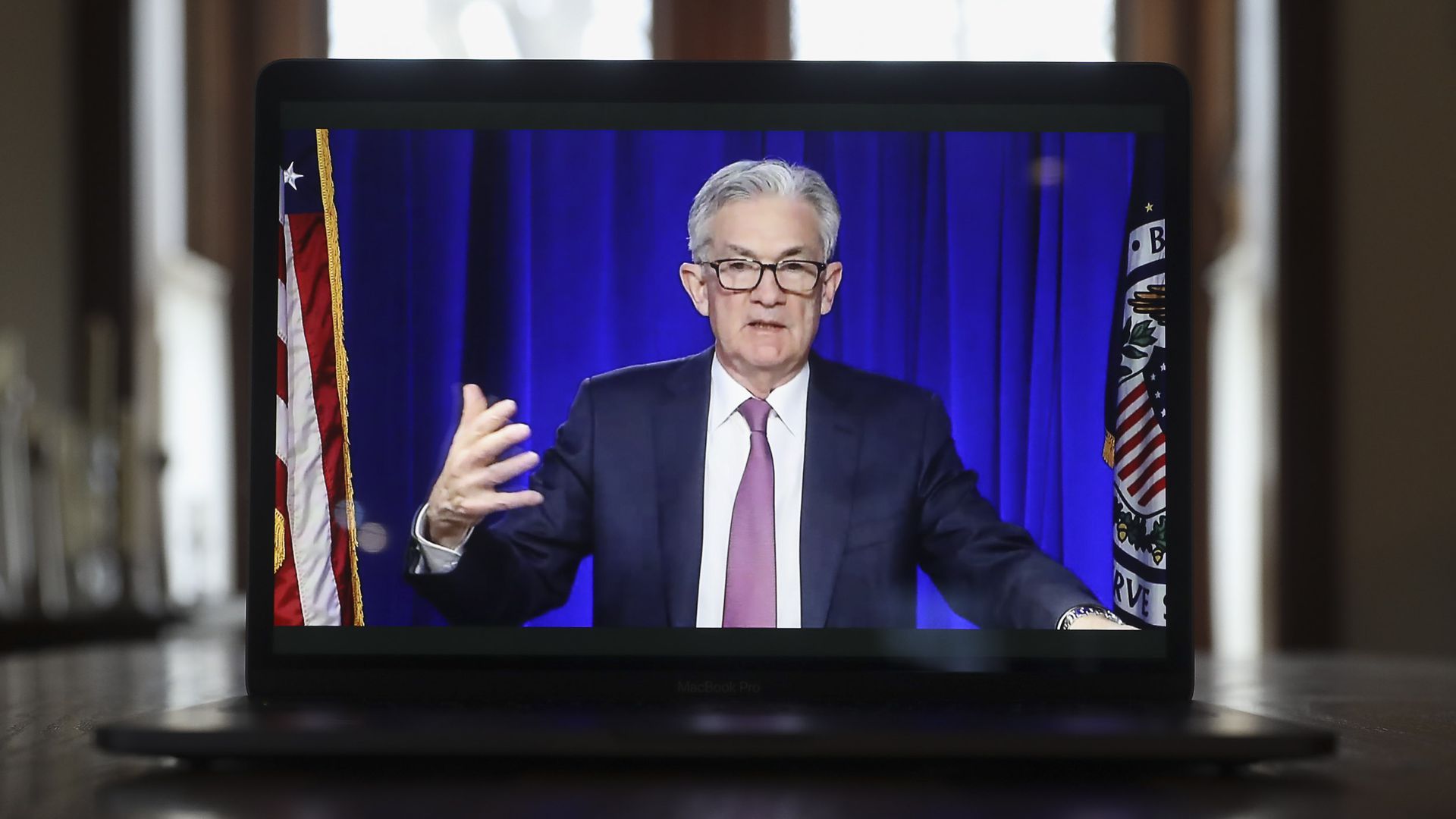Markets could be just fine when the Fed begins tapering its emergency support
Add Axios as your preferred source to
see more of our stories on Google.

Fed Chair Jerome Powell. Photo: Daniel Acker/Bloomberg via Getty
Experts warn that the Federal Reserve’s plan to eventually taper its quantitative easing program could bring volatility to the markets. But the volatility could prove limited.
Why it matters: QE is an emergency monetary policy tool that involves large-scale purchases of Treasury and mortgage-backed securities in an effort to keep the bond markets liquid and well-functioning during times of stress.
- As the economy has been improving, the calls to taper these purchases have gotten louder.
Flashback: In the wake of the global financial crisis, the Federal Reserve employed QE for years before saying in May 2013 that it could begin tapering later that year.
- The discussion was received poorly by the markets, which saw stocks and bonds tumble hand-in-hand.
What they’re saying: "Market participants may view the Fed’s initial announcement about its intentions for tapering as one signal about the timeline for interest rate hikes," Goldman Sachs U.S. equity strategist David Kostin wrote.
- In other words, the announcement, which is expected to come later this year, could be seen as a signal for sooner-than-expected rate hikes, which currently aren’t expected to happen until 2023.
- The 2013 "taper tantrum" episode was driven by "fears about the premature removal of monetary support and the potential for imminent rate hikes," Kostin says.
Yes, but: "Ultimately, the [2013] selloff proved temporary; the S&P 500 returned 32% in 2013," Kostin notes.
State of play: Last week, the Federal Reserve signaled that it could be months before it communicated plans to taper QE.
- In a speech given on Monday, Fed governor Lael Brainard sent similar signals, saying she wants to have economic data "in hand for September" before deciding what's next for policy.
The bottom line: The 2013 taper tantrum could very well be renamed the "taper triumph" considering how quickly the markets bounced back and then some.
